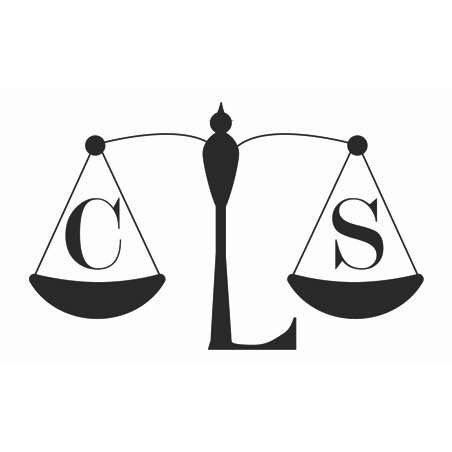Best New Business Formation Lawyers in Yemen
Share your needs with us, get contacted by law firms.
Free. Takes 2 min.
Or refine your search by selecting a city:
List of the best lawyers in Yemen
About New Business Formation Law in Yemen
New business formation in Yemen is governed by a combination of laws and regulations designed to facilitate the establishment of different business entities. The framework aims to provide a comprehensive guideline for legal entities, entrepreneurs, and foreign investors looking to enter the Yemeni market. Companies in Yemen can take various forms, including sole proprietorships, partnerships, and limited liability companies. Establishing a business requires understanding the regulatory procedures, which include registering with the Ministry of Industry and Trade and obtaining the necessary permits and licenses.
Why You May Need a Lawyer
Engaging a lawyer when forming a new business in Yemen can be crucial for several reasons. The legal system can be complex and navigating bureaucratic processes may require expert knowledge. Common situations where legal help is needed include:
- Understanding the type of legal entity best suited for your business needs.
- Ensuring compliance with Yemeni laws and regulations.
- Drafting and reviewing necessary legal documents such as articles of incorporation and partnership agreements.
- Assisting with registrations and obtaining business licenses.
- Guidance on resolving disputes and navigating any legal challenges that may arise.
Local Laws Overview
Yemen's legal framework for new business formation primarily revolves around the Commercial Code and associated regulations. Key aspects include:
- Business Registration: All businesses must register with the Ministry of Industry and Trade and obtain a commercial registration certificate.
- Types of Business Entities: Options include sole proprietorship, partnership, limited liability company, and joint-stock company.
- Foreign Ownership: There are specific provisions for foreign investors, including restrictions and requirements for joint ventures with local partners.
- Taxation: Businesses are subject to various taxes, including income tax and VAT, with specific rates and compliance procedures.
- Labor Laws: These govern employment standards, contractual obligations, and worker rights.
Frequently Asked Questions
What is the first step in forming a business in Yemen?
The first step is choosing the type of business entity you wish to establish and then registering your business with the Ministry of Industry and Trade.
Do I need a local partner to start a business in Yemen?
While not always necessary, foreign investors often need a local partner due to certain restrictions on foreign ownership, especially in specific sectors.
How long does the business registration process take?
The registration process can vary in time depending on the type of business and the compliance requirements, usually taking several weeks.
What forms of businesses can I register in Yemen?
You can establish sole proprietorships, partnerships, limited liability companies, and joint-stock companies in Yemen.
Is it mandatory to hire a lawyer for forming a business?
Though not mandatory, hiring a lawyer is advisable to ensure compliance with legal requirements and smooth navigation of the registration process.
Are there any special incentives for foreign businesses?
Yes, the government may offer incentives such as tax breaks or simplified customs procedures to attract foreign investment in certain sectors.
What taxes will my business be subject to?
Businesses are commonly subject to income tax, VAT, and possibly other local taxes depending on their activities and location.
Do I need special permits or licenses to operate certain businesses?
Yes, certain industries require specific licenses or permits, which must be obtained in addition to the commercial registration.
Can I employ foreign workers in my business?
Employing foreign workers is possible but subject to specific labor laws and visa requirements.
What are the penalties for non-compliance with business regulations?
Penalties can include fines, revocation of business licenses, and legal action, depending on the severity of non-compliance.
Additional Resources
For those seeking further assistance with new business formation in Yemen, consider reaching out to the following resources:
- Ministry of Industry and Trade: Responsible for business registration and regulatory compliance.
- Yemeni Chamber of Commerce and Industry: Offers support and resources for entrepreneurs and investors.
- Local Legal Firms: Provide specialized services for business law and regulatory issues.
- Investment Promotion Authority: Provides information and support for foreign investors.
Next Steps
If you are considering forming a new business in Yemen and need legal assistance, follow these steps:
- Research appropriate legal professionals with experience in Yemeni business law.
- Prepare a detailed business plan to discuss with your lawyer.
- Gather all necessary documentation required for business registration and licensing.
- Schedule a consultation with a legal advisor to outline legal requirements and compliance.
- Proceed with the registration process with the help of your legal advisor to ensure all legal protocols are followed carefully.
Lawzana helps you find the best lawyers and law firms in Yemen through a curated and pre-screened list of qualified legal professionals. Our platform offers rankings and detailed profiles of attorneys and law firms, allowing you to compare based on practice areas, including New Business Formation, experience, and client feedback.
Each profile includes a description of the firm's areas of practice, client reviews, team members and partners, year of establishment, spoken languages, office locations, contact information, social media presence, and any published articles or resources. Most firms on our platform speak English and are experienced in both local and international legal matters.
Get a quote from top-rated law firms in Yemen — quickly, securely, and without unnecessary hassle.
Disclaimer:
The information provided on this page is for general informational purposes only and does not constitute legal advice. While we strive to ensure the accuracy and relevance of the content, legal information may change over time, and interpretations of the law can vary. You should always consult with a qualified legal professional for advice specific to your situation.
We disclaim all liability for actions taken or not taken based on the content of this page. If you believe any information is incorrect or outdated, please contact us, and we will review and update it where appropriate.
Browse new business formation law firms by city in Yemen
Refine your search by selecting a city.









